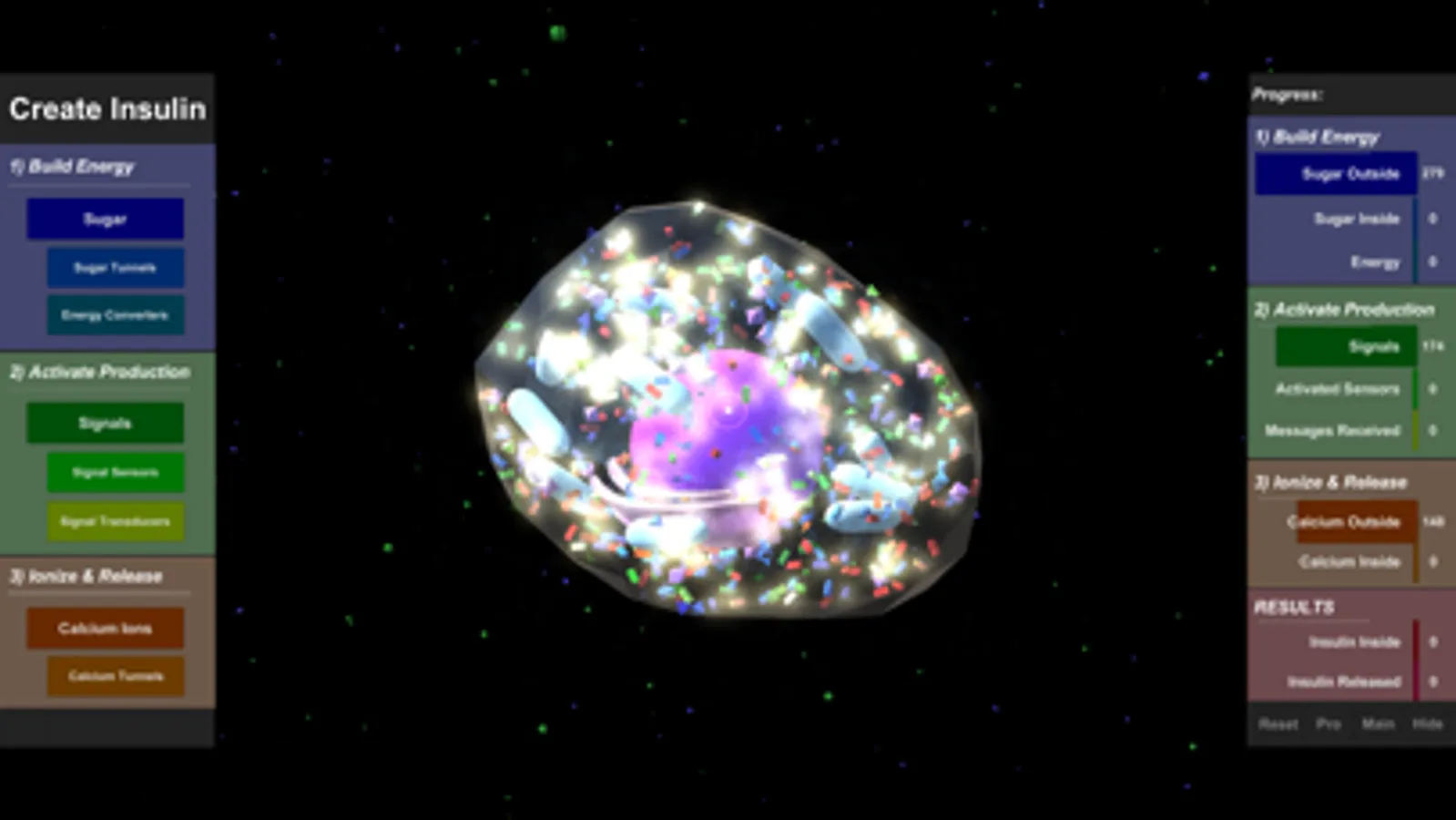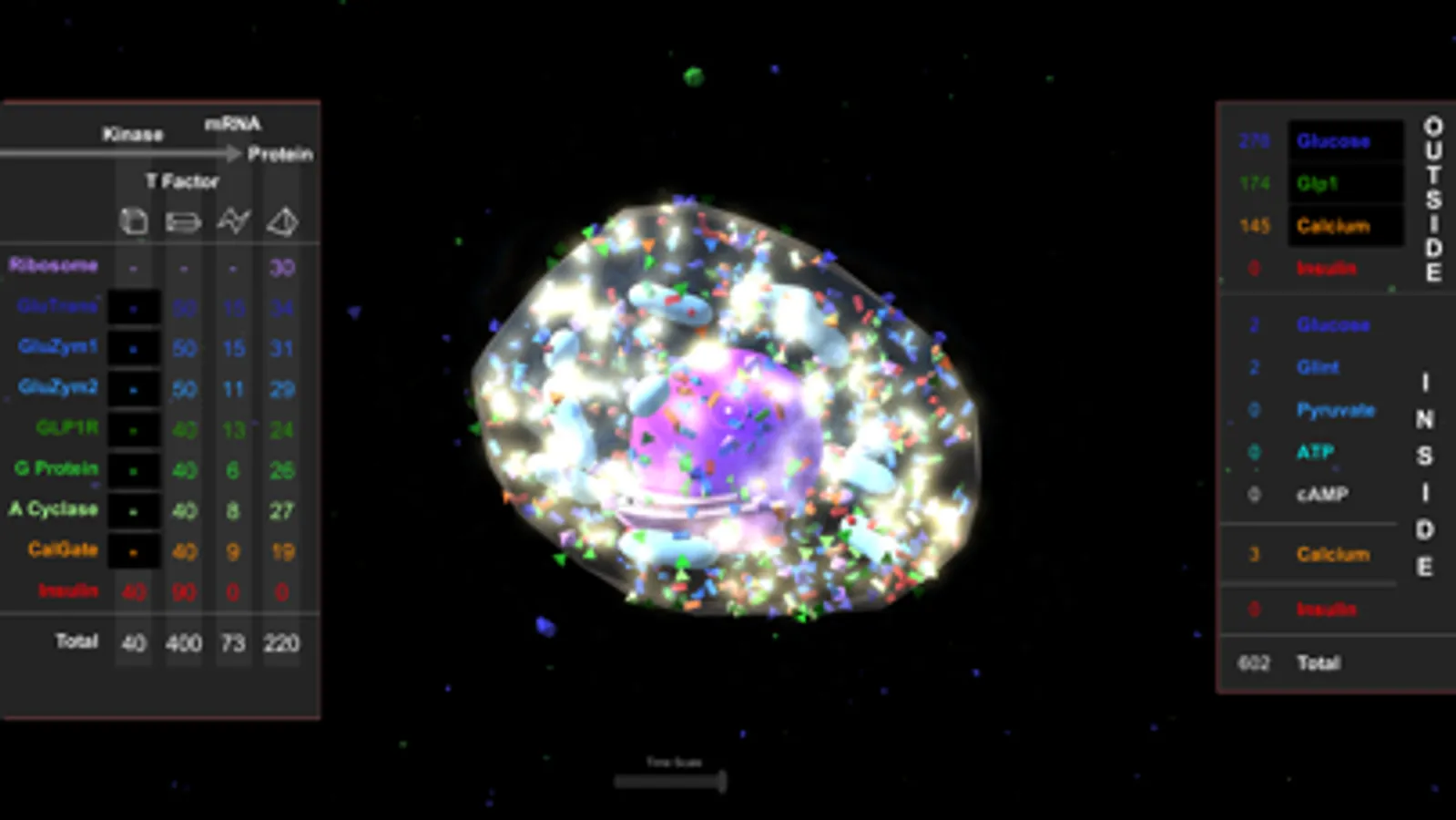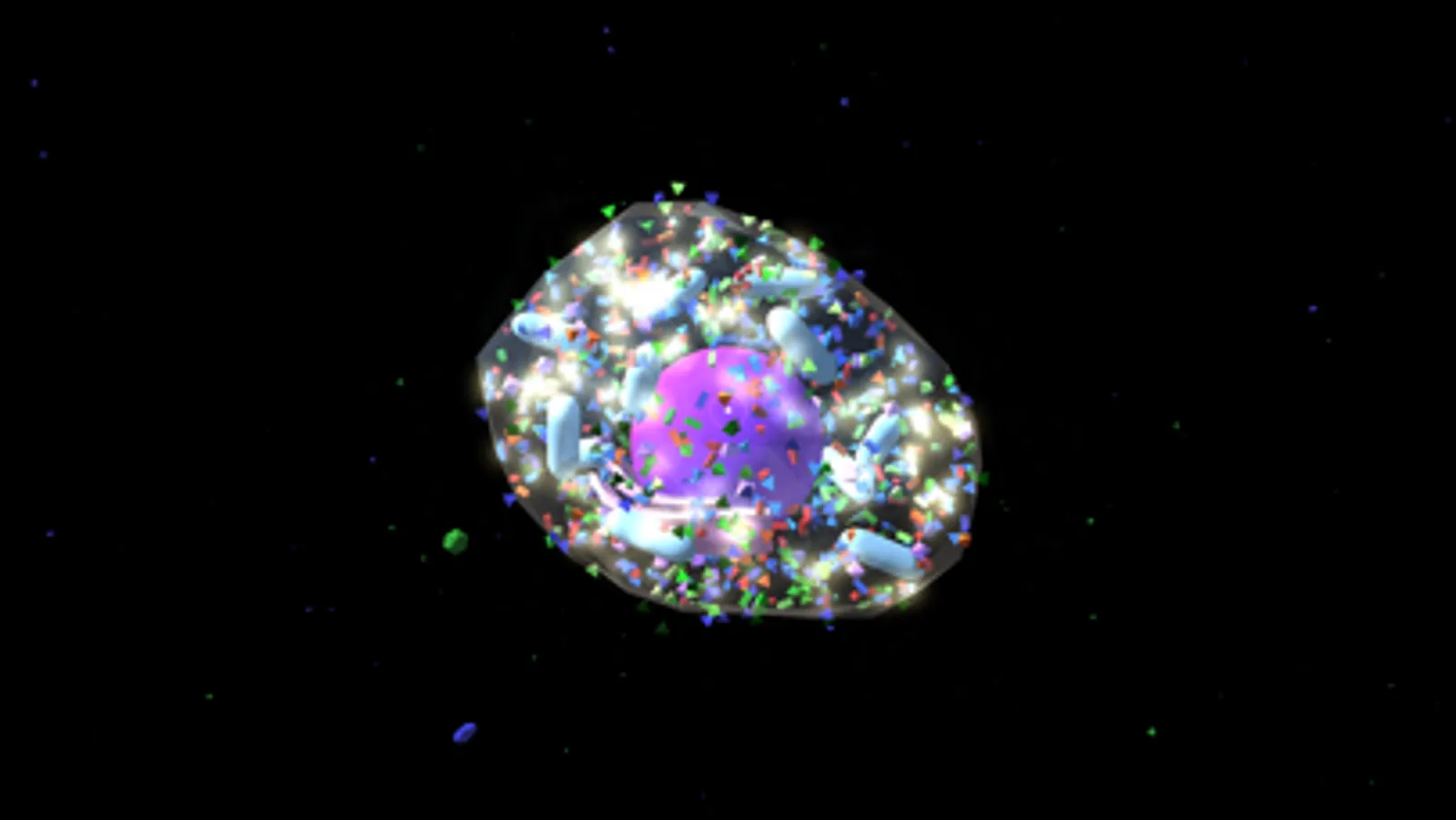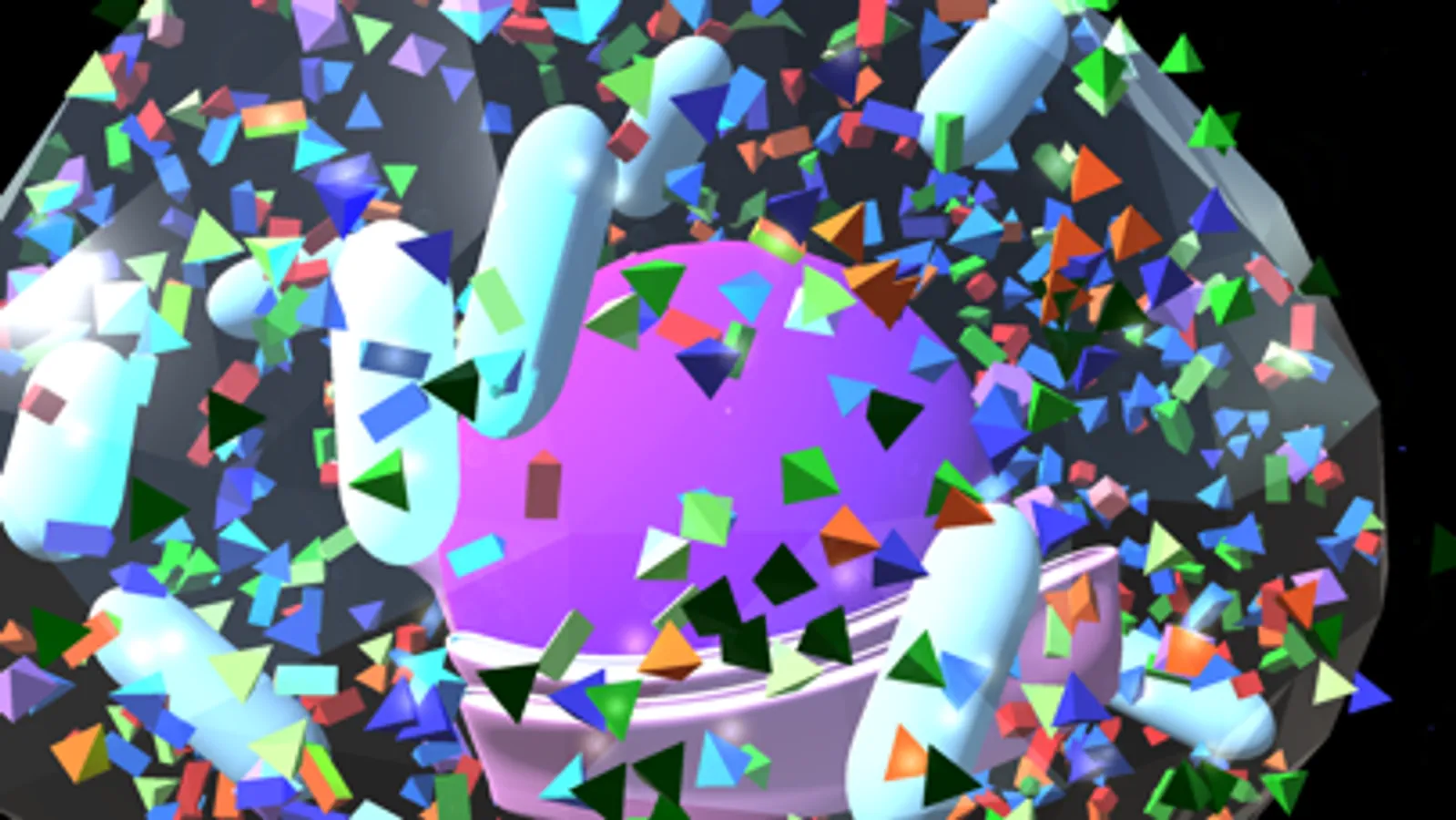About Cell Toy
The Cell Toy works like a Rube Goldberg machine, much like our own cells do – i.e., each step must be activated by a specific precursor. The glucose can’t enter the cell until the GLUT transporters, referred to as “sugar tunnels,” are created; and the glucose can only be converted to ATP by running into “sugar converters,” which represent glycolysis and respiration enzymes. Eventually, once enough ATP is created, you can activate the GLP1R pathway (in green, “2 - Activate Production”) to start generating insulin inside the cell. In part 3 (orange, “Ionize & Release”) you can create calcium transporters to bring the ions into the cell, which cause the insulin to be released. I guess that’s how you “win” lol… it’s probably more of an interactive teaching tool than a game, but I’m sure you’ll get the gist.
At the beginning, the cell is filled with colored triangular prisms represent transcription factors. The transcription factors are activated by pressing their corresponding buttons on the left side panel and once activated they move toward the nucleus. When a transcription factor enters the nucleus, its corresponding mRNA is created, which is represented by a flat and folded shape that shares the same color as the transcription factor that led to its creation. Once the mRNA runs into the purple ribosomes, shaped like pyramids, the mRNA is converted to its corresponding enzyme. Each enzyme has a particular function in the Cell Toy whether it’s converting glucose, transferring signals, importing new molecules, etc. If you add all the right ingredients, you make insulin.
At the beginning, the cell is filled with colored triangular prisms represent transcription factors. The transcription factors are activated by pressing their corresponding buttons on the left side panel and once activated they move toward the nucleus. When a transcription factor enters the nucleus, its corresponding mRNA is created, which is represented by a flat and folded shape that shares the same color as the transcription factor that led to its creation. Once the mRNA runs into the purple ribosomes, shaped like pyramids, the mRNA is converted to its corresponding enzyme. Each enzyme has a particular function in the Cell Toy whether it’s converting glucose, transferring signals, importing new molecules, etc. If you add all the right ingredients, you make insulin.



